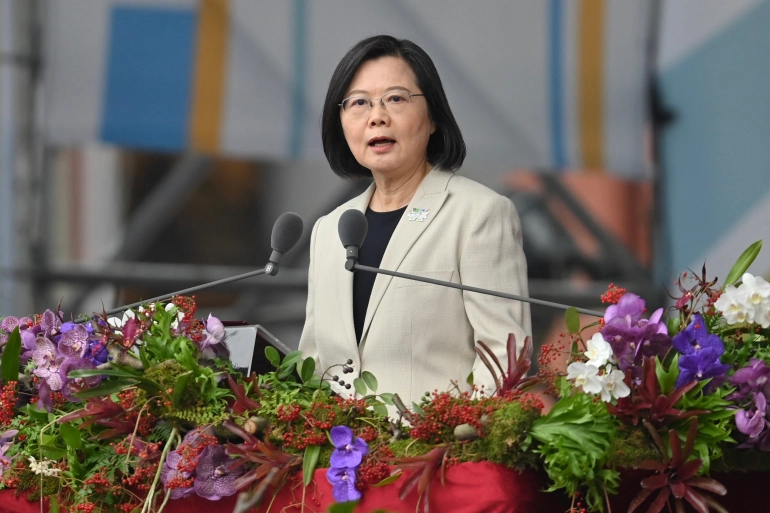
Taiwan President Tsai Ing-wen has resigned as head of the governing Democratic Progressive Party (DPP) after her strategy to frame local elections as showing defiance to China’s rising bellicosity failed to pay off and win public support.
Tsai offered her resignation on Saturday evening, a tradition after a major loss, in a short speech in which she also thanked supporters.
“I must shoulder all the responsibility,” she said. “Faced with a result like this, there are many areas that we must deeply review.”
The elections for mayors, county chiefs and local councillors are ostensibly about domestic issues such as the COVID-19 pandemic and crime, and those elected will not have a direct say on China policy.
But Tsai had recast the election as being more than a local vote, saying the world is watching how Taiwan defends its democracy amid military tensions with China, which claims the island as its territory.
The main opposition party, the Kuomintang, or KMT, was leading or claimed victory in 13 of the 21 city mayor and county chief seats up for grabs, including the capital Taipei, compared with the DPP’s five, broadly in line with expectations and similar to the results of the last local elections in 2018.
“The results failed our expectations. We humbly accept the results and accept the Taiwanese people’s decision,” Tsai told reporters at party headquarters as she quit as party head, which she also did after 2018’s poor results.
“It’s not like the DPP has never failed before,” Tsai, who will continue serving as president until 2024, added. “We don’t have time to feel sorry. We fell, but we will stand up again.”
Tsai said she had rejected a resignation offer from the premier, Su Tseng-chang, also a senior DPP member, adding she had asked him to stay in office to ensure her policies would be properly implemented.
The Cabinet said Su had agreed to stay due to the need for stability amid the “arduous” domestic and international situation.
China’s Taiwan Affairs Office said the result showed that mainstream Taiwanese public opinion was for peace, stability and “a good life”, and that Beijing would keep working with Taiwan’s people to promote peaceful relations and to oppose Taiwan independence and foreign interference.





















